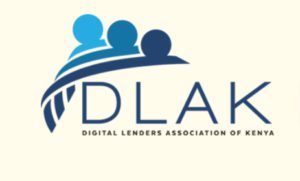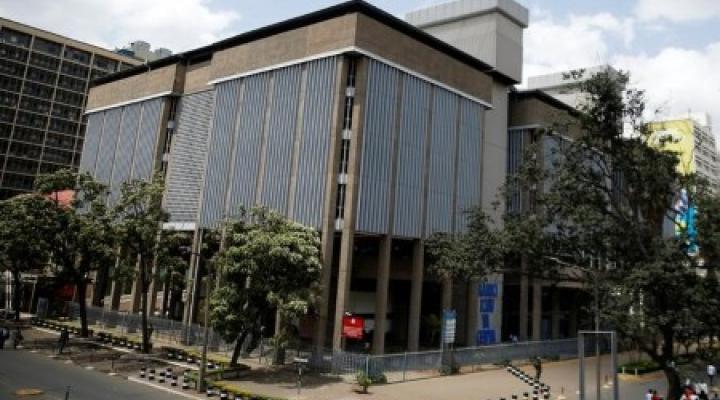The Central Bank of Kenya (CBK) has requested that the Kenyan Parliament revised a proposed law which would allow digital lenders in the country to return to reporting all customer loan defaults to the Credit Reference Bureaus (CRBs).

In April of 2020 digital lenders in Kenya had previously been instructed to cease the filing of loan default reports with the Credit Reference Bureaus (CRBs). The Central Bank of Kenya (CBK) stated that the decision was in response to the numerous complaints highlighting the abuse of the credit profiling system, by a number of the digital lenders.
On Tuesday the 13th of July 2021 the Central Bank of Kenya (CBK) made it known to the National Assembly’s Committee on Finance and National Planning that digital lenders in Kenya can go back to working with the Credit Reference Bureaus (CRBs) due to the fact that they will be regulated. That is provided of course that the Members of Parliament adopt the Central Bank of Kenya (CBK) (Amendment) Bill, 2021.
The Governor of the Central Bank of Kenya (CBK); Patrick Njoroge when speaking to the Parliament Finance Committee stated that, “The Central Bank Amendment Bill 2021 should empower digital lenders to share credit information.”

The digital lenders which include establishments who give out or provide credit via the internet and mobile phones, have been accused of using a number of tactics that are aggressive. Said aggressive tactics include threatening their users who default on loan payments, with negative listings on Credit Reference Bureaus (CRBs).
As soon as all digital lenders in Kenya are under the supervision of the Central Bank of Kenya (CBK), it will be able to effectively monitor and regulate the way(s) that they; the digital lenders, carry out the sharing of credit information to establishments like Savings and Credit Co-Operative Societies (SACCOs), banks, and others who make use of the system.
The Central Bank of Kenya (CBK) (Amendment) Bill, 2021 will give all unregulated digital lenders six (6) months to get in line with the regulation of the Central Bank of Kenya (CBK) which will be in charge of licensing the digital lenders who comply.
Apart from digital lenders in Kenya being accused of making threats to give loan defaulters negative listings on the Credit Reference Bureaus (CRBs), the digital lenders have also been accused of making mistakes during the negative listings of loan defaulters on the Credit Reference Bureaus (CRBs) and did not have any processes or procedures in place to rectify such mistakes when they occur.
One of the most powerful and effective risk management tool for digital lenders and micro lenders alike, is Credit Information Sharing (CIS). This is because Micro lenders and digital lenders usually do not take any collateral from its users whenever they issue out short term loans to them.

The implication of a negative listing on Credit Reference Bureaus (CRBs) is that it will not be possible for anyone with a negative listing to gain access to a loan from another any digital lender or credit provider. It also serves as a deterrent for anyone looking to default on their loans on purpose.
The prevention of digital lenders from making any listings on the Credit Reference Bureaus (CRBs) led to an up to 50 percent drop in the number of loans that were issued via mobile phones in the country.
According to an estimate by the Digital Lender Association of Kenya (DLAK), the value of loans that were issued every month dropped by half to as low as 2 billion Kenyan Shillings.

Unregulated digital lenders in Kenya have reportedly issued a total of 4 billion Kenyan Shillings. While that figure might appear to be impressive, it is less than one (1) percent of the total loan portfolio of 3.1 trillion Kenyan Shillings for the banking sector.
As a result of their reported business practices like agreesive loan recovery strategies and rocket high interest rates which have been described as being predator like, the Kenyan government has now begun to pay close attention to the digital lenders.
It is however not yet known if the interests being charged by these digital lenders and which usually get as high as a couple of hundreds of points in terms of percentage when put in a yearly perspective, will be part of the issues that will be regulated.
The Central Bank of Kenya (CBK), made it known that it would initiate participation from the public, before then going to publish the specific guidelines as soon as the Central Bank of Kenya (CBK) (Amendment) Bill, 2021 gets enacted into law.
The Central Bank of Kenya (CBK) stated that it will be taking a page from the experience undergone in other jurisdictions like South Africa for example, in order to effectively regulate the digital lenders who offer credit in the Kenyan market.
Apart from curtailing and discouraging any business practices by the digital lenders the the Central Bank of Kenya (CBK) (Amendment) Bill, 2021, aims to effectively combat the various concerns of illicit financial transactions including of course, money laundering.

Users of digital lenders in Kenya have documented their grievances and complaints which include being charged fees that were to say the least unexpected along with not being informed or made privy to the fees or costs linked with the loans received.
A number of the users of digital loans are unaware of the terms and conditions attached to the loans, including having to surrender any personal data to third parties, and constant Short Message Service (SMS) notifications.
A number of alternative lenders have been known to make use of social pressure tactics to ensure that the loans given are repaid. These social pressure tactics include contacting the friends and families of those who default on loans, and informing them of the loan default(s).
Among the countries which have increased their regulation of micro lenders, is the People’s Republic Of China.

The People’s Republic Of China which is the most populous country in the world has in recent times, banned the establishments from issuing any loans to students in college so as to effectively combat over lending.
The People’s Republic Of China has also placed a limit on the interest rates charged on micro loans at not more than up to four (4) times the rate which has been set by its Central Bank; the People’s Bank of China..
The adoption of digital loans in Kenya has over the last few years, increased in usage and popularity. This is as a result of the fact that low income earners in the country have been more open to patronizing the digital lenders who have come to be known and perceived as more accessible credit facilities.
The Central Bank of Kenya (CBK) made it known to the Kenyan Parliament that in 2016 an estimate of 200,000 individuals in Kenya were accessing loans via their mobile phones. The number however increased to two (2) million individuals by 2019 a growth of tenfold.
The Central Bank of Kenya (CBK) estimates that there are over 100 digital lenders who are unregulated and active in the East African Nation of Kenya.
How informative was this article? Are there any other news topics, categories, or How To topics, that you would like us to write on? Feel free to reach out to Mpesa Pay in the comment section.


